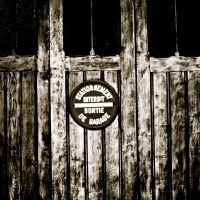The University of Groningen blocks Bittorrent, a file exchange protocol. This is a violation of academic freedom, Danny Mekic’ states.
In 1158, the University of Bologna, the oldest university in Europe, accepted the Constitutio Habita, a manifesto written by Frederick I of Hohenstaufen, emperor of the Holy Roman Empire. This manifesto described students’ and scholars’ right to freedom from political interference and their right to unimpeded access to information.
Nowadays, thousands of universities have embraced students’ and scholars’ right to remain unconstrained by any prescribed doctrine, and to have the freedom to teach, discuss, research, distribute and publish results of research, and to be free from institutional censorship. All of them subscribed to the right to academic freedom, as formulated 850 years ago.
The rise of the internet was good news for academic freedom. The internet made it far easier and cheaper to create, share, find and search information. There’s a reason why the internet is the most widely used source of information at any university around the world. In fact, it was universities who invented the internet, for exactly this purpose.
Last week, the University of Groningen decided to voluntarily censor all internet connections. After complaints from American media companies Warner Brothers and Paramount Pictures, the university blocked the data exchange technology Bittorrent, without any involvement of the legal system. In doing so, the principles of Frederick I and society’s right to unconstrained access to information were thrown to the wind.
The complaints by the media companies — of which over 85% turned out to be unfounded — were about exchanging copyrighted material such as films and music, which can be legally downloaded but not uploaded. The university could inform students on how to switch off uploading with Bittorrent. In that case, the students’ use would be legal in most cases. The university opted for a more heavy-handed approach — pre-emptive, categoric and systematic filtering and censorship of internet connections that students pay to use, even at home.
Bittorrent has many legal applications too. The renowned magazine Nature recently described Bittorrent as a solution to the difficulty of exchanging large amounts of data between researchers, as was done in the case of Biotorrent by the University of California. A university can’t ban something that’s this inextricably linked to scientific practice.
The University of Groningen should therefore undo this measure, handle complaints on a case-by-case basis and create the appropriate conditions and liberties for all students and staff, to allow them to practise science in freedom with no hindrance or censorship.

Leave a Reply